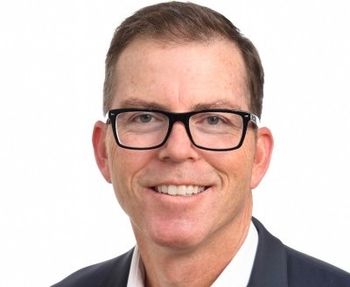
Why hospitals should be reviewing their pandemic response
Now is the time for healthcare organizations to assess what worked and what didn’t, says Michelle Machon of Kaiser Permamente.
With COVID-19 cases and hospitalizations down from peak levels in January, Michelle Machon said healthcare organizations have a golden opportunity they cannot miss.
Hospitals and healthcare organizations should be taking a close look at their response to the pandemic, said Machon, the director of clinical education, practice, and informatics at Kaiser Permanente.
She talked about the importance of the debriefing, and the way the pandemic has changed communications, at the HIMSS 2022 Global Health Conference & Exhibition. (The story continues after the video.)
During her session, a quick, informal survey indicated few in the audience had been part of a pandemic de-briefing.
“In healthcare we get on a treadmill, of one crisis finishes, and then we move on and we don’t spend as much time debriefing, even though the research tells us that we should,” Machon said at the HIMSS conference.
“My encouragement for everybody in the room today was really think about, now that the pandemic has reduced, and the numbers are down, to take that time and debrief what worked well during the pandemic and what we need to fix for the next time,” she said.
Machon referenced a HIMSS speech from James Murphy, a former Air Force pilot and founder of Afterburner, a consulting firm. Murphy discussed the debriefing after each mission to evaluate strengths and weaknesses.
With cases far below the peak and healthcare organizations starting to get a chance to catch their breath, now is the time to take a look at technology needs to determine what worked well or what needs an upgrade, Machon said. With the likelihood of future COVID-19 variants and other pandemics, health systems should examine their technology needs now.
Healthcare leaders should look at their technology in hand and score its performance, and also look at how long it will take to implement new technology. The middle of the pandemic is not the best time to go to market to try and find new technology upgrades, Machon said.
Machon also talked about how the pandemic changed the way health professionals communicate with each other, along with some lessons learned.
In the midst of a crisis, it’s important to realize that doctors or nurses or others may not see, or remember, every email or message they get. It’s critical to follow up.
“I cannot tell you how many people said, ‘I never got that message,’” Machon said.
She recalled having a meeting on personal protective equipment with staff, and following up with some people who said they missed the message, even though they had attended the session in person. During a crisis, people are juggling and can only retain so much.
“Never assume, even when someone is sitting right in front of you, never assume the emergency message was received,” she said.
Out of necessity, healthcare organizations had to pivot and implement new programs, including telehealth services, almost overnight. Healthcare leaders need to retain that spirit of innovation and openness to new possibilities. She urged the healthcare pros in the audience to think like McGyver, the popular TV action hero, and innovate.
In an emergency, “You’re either going to drown or you’re going to innovate.”
Helathcare organizations must foster open dialogues with their staff members, so they aren’t afraid to explore new options, suggest new ideas and ask about trying new approaches.
“Advocate for the impossible,” Machon said.
Hospitals can take lessons from the pandemic, including how they responded to help workers. Healthcare organizations need to consider the needs of the support staff. She said it made a difference when staff from other departments went on the floor to help deliver meals to patients, and said that resonated with staff, who felt like leaders understand the scope of the crisis.
Hospitals have shown they can overcome tremendous hurdles in the pandemic. Healthcare organizations need to retain that spirit of innovation, creativity, and ability to adapt.
“Our own inertia stopped when the pandemic hit, when we stopped talking and started doing,” she said.
Citing the lessons from Murphy, the entrepreneur and pilot, Machon said, “Now we know that we can turn and burn and execute.”






























